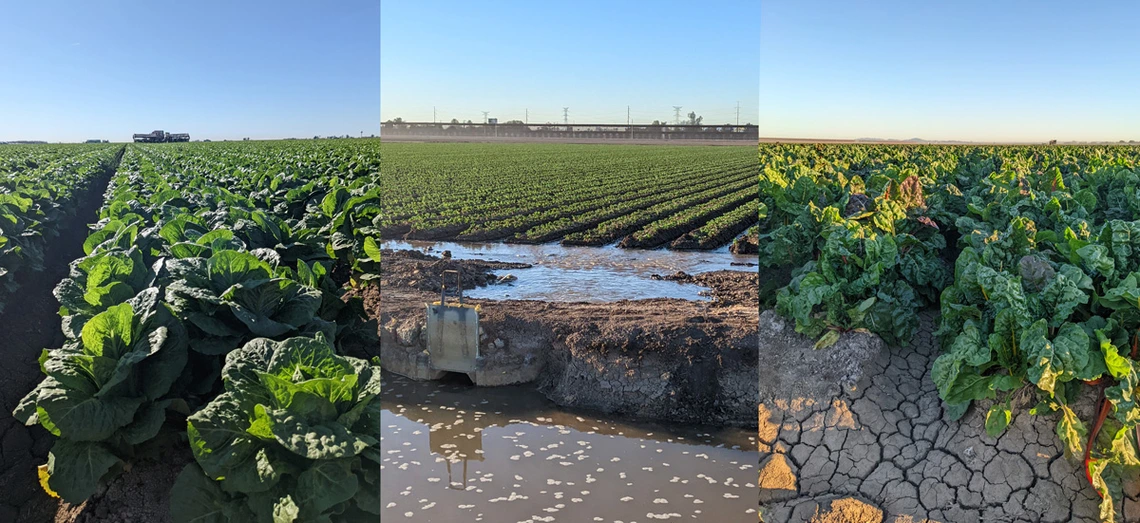Gaining Perspective: Agriculture in Yuma
Feb. 4, 2022
Image

By Michael Seronde, WRRC Program Manager
During the winter months, as much as 70% of the leafy greens found in grocery stores are grown within 100 miles of Yuma, AZ. At the end of January, I traveled to Yuma with my peers in Class 30 of Arizona Project CENTRL to gain a better understanding of some of the challenges facing this important agricultural region. We saw firsthand what goes into getting Yuma area-grown produce into homes across the US and Canada. Our experience focused on water, labor, and border issues; all interconnected with the region’s agriculture.
When we first arrived in Yuma, we met with Tom Davis, manager of the Yuma County Water Users Association and president of the Agribusiness and Water Council of Arizona, Paul Brierly, executive director of the Yuma Center of Excellence for Desert Agriculture, Meghan Scott, water attorney at Noble Law, and John Boelts, farmer and first vice president of the Arizona Farm Bureau. This group set the stage for a day visiting the surrounding farmlands by sharing their insights and expertise in agricultural water management. Agriculture accounts for roughly 70% of all the water used in AZ. In Yuma County, that number is more than 96%. Almost all the water comes from the Colorado River. Working in water resources had given me, at minimum, a baseline understanding of agricultural water use and the challenges facing growers – but it is something entirely different to stand at the edge of an irrigation ditch, boots caked with mud, watching the steady creep of Colorado River water flow across a field.
Starting at 5 am at the San Luis Port of Entry on the US-Mexico border, we learned about the incredibly long and difficult workdays of agricultural workers. Many start their day at 3 am to cross the border, load onto buses, and work for 8-10 hours harvesting and packing produce that ends up in trucks that deliver to grocery stores the following morning. Through our visits and discussions, we traced water from the Colorado River to our dinner tables. The physical backbreaking labor of farm work coupled with the emotional and political challenges of crossing the border every day deepened my appreciation for the fresh produce we were gifted as Project CENTRL participants. Meeting with a Border Patrol agent to hear about their experiences working in the Arizona borderlands further highlighted the complicated, often painful relationship we have with barriers. Water and food are the ultimate connectors; we all need water – north or south of the border – and immersive learning with important regional water users helps to deepen the complex relationship we have with this precious and limited resource.
Image: Produce Fields in Yuma, AZ, Michael Seronde

